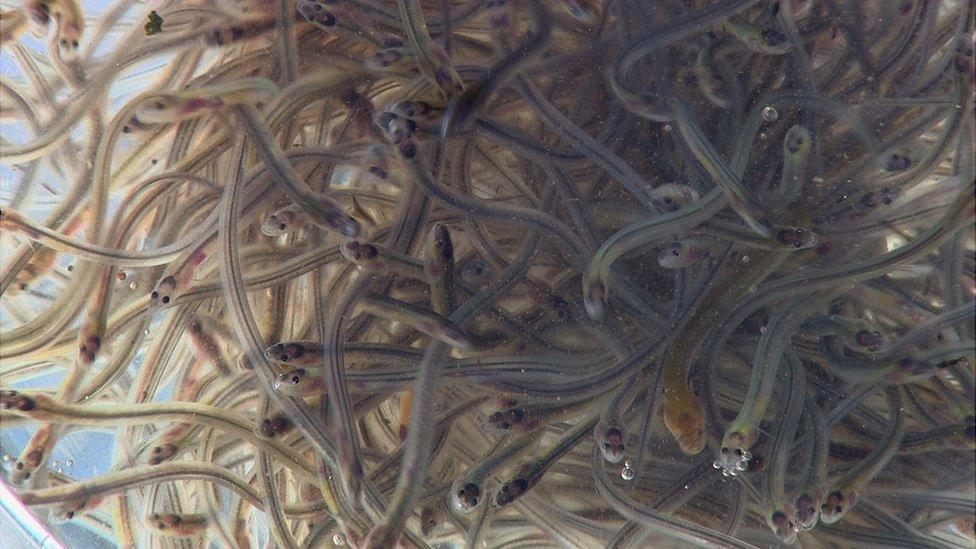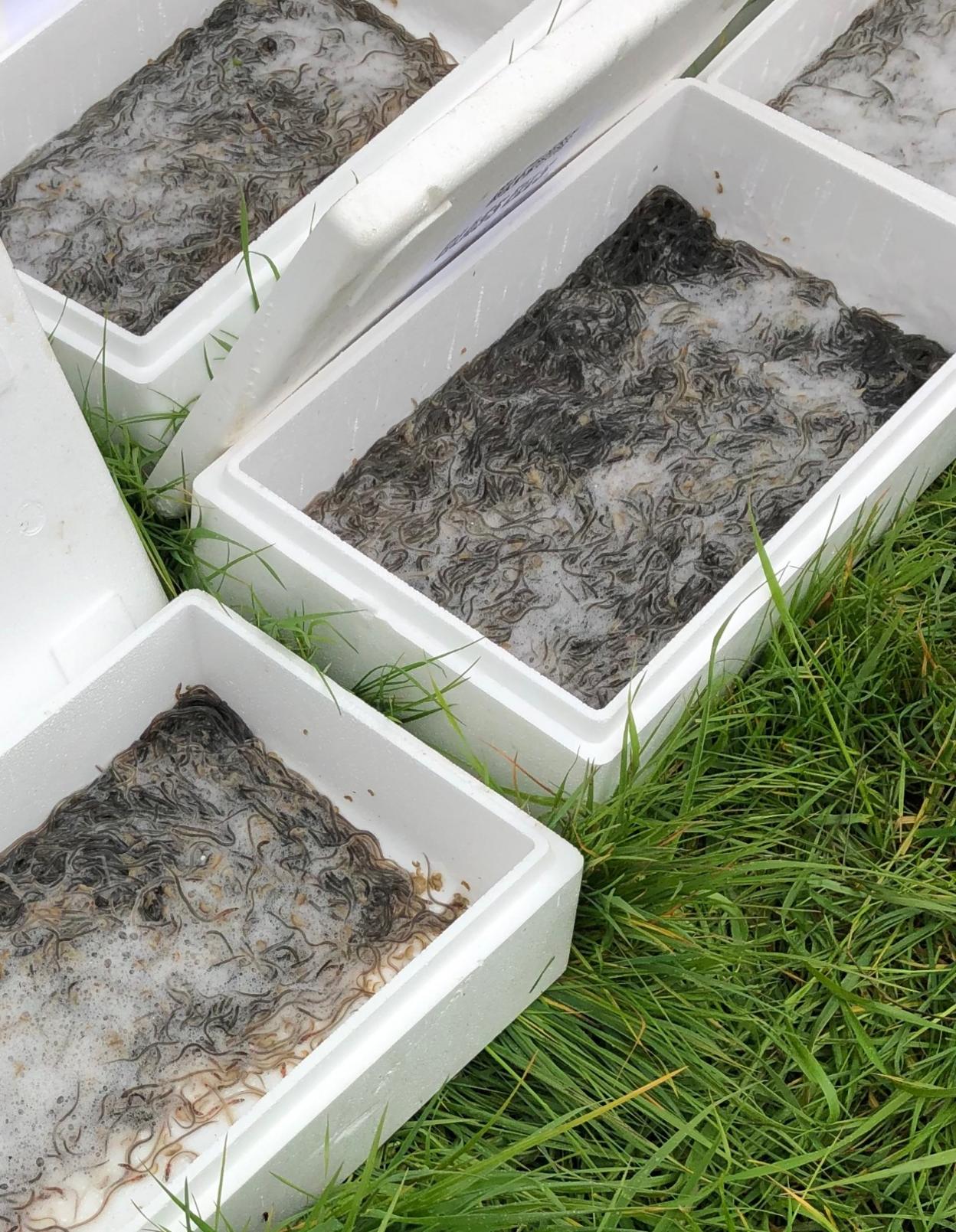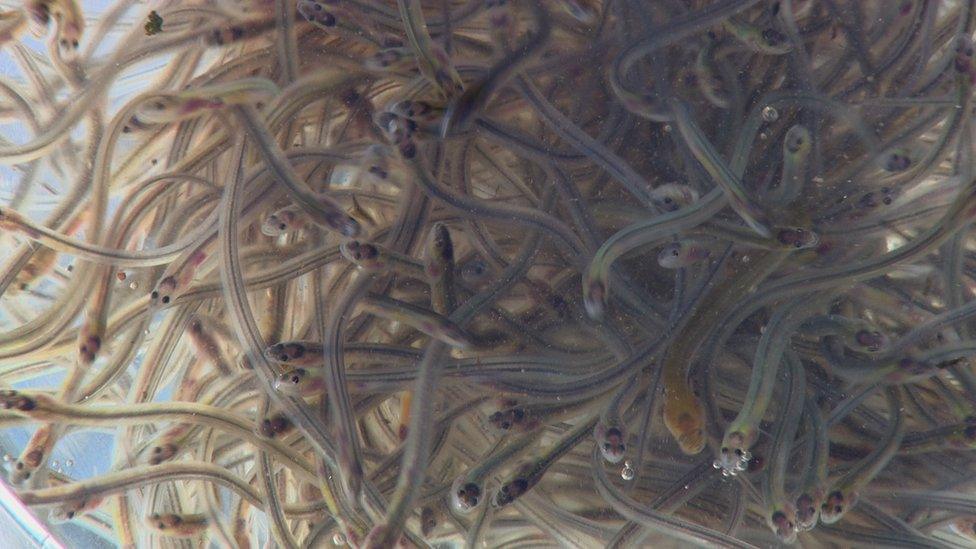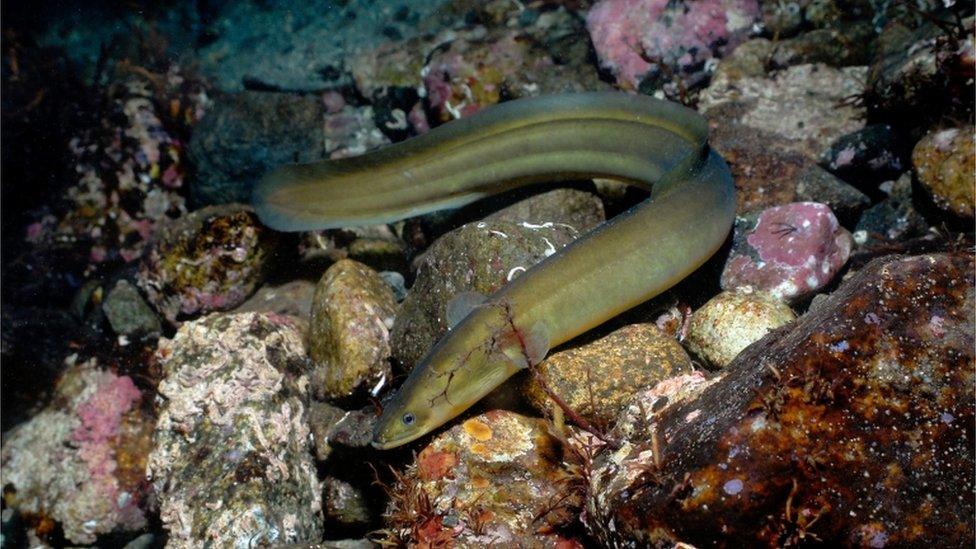Migrating eels helped over barriers in River Severn
- Published

The SEG has so far "assisted" more than a million fish on their migration
Tens of thousands of migrating eels have been rescued after getting trapped by barriers on the River Severn.
About 150,000 glass eels were caught and released this week near Tewkesbury by the Sustainable Eel Group (SEG).
The SEG has so far "assisted" more than a million fish on their migration on the Somerset levels and River Severn.
Andrew Kerr from SEG said: "When they collect in front of the barriers, they are food for everything so getting them up stream increases their survival."
Millions of the tiny glass eels end up in the River Severn after drifting across the Atlantic Ocean for two or three years from the Sargasso Sea.
The young then mature in the fresh waters of the Severn Vale wetlands, growing up to 3ft (1m) long, before leaving and disappearing back into the North Atlantic.

Boxes of migrating glass eels are "picked up and moved" up to 10 miles upstream and released
But as wetlands have been lost and migratory paths blocked by pumps and sluices, the eels have been unable to migrate freely to their prime habitat and their numbers have nosedived.
So with the annual migration in full swing, volunteer elver fishermen have been heading out at night with dip nets to catch millions of the eels and transport them up stream past the barriers.
"If you look at this landscape it was all marsh at the time of King Alfred and then we drained it with our engineering and the result has been the eels get trapped between the different drainage ditches," Mr Kerr said.
"Although there's a programme of enabling eels to pass, it's not everywhere and there are lots of streams and channels that are still blocked to the migration of eels."

Follow BBC West on Facebook, external, Twitter, external and Instagram, external. Send your story ideas to: bristol@bbc.co.uk , external
Related topics
- Published16 June 2019

- Published17 May 2019
